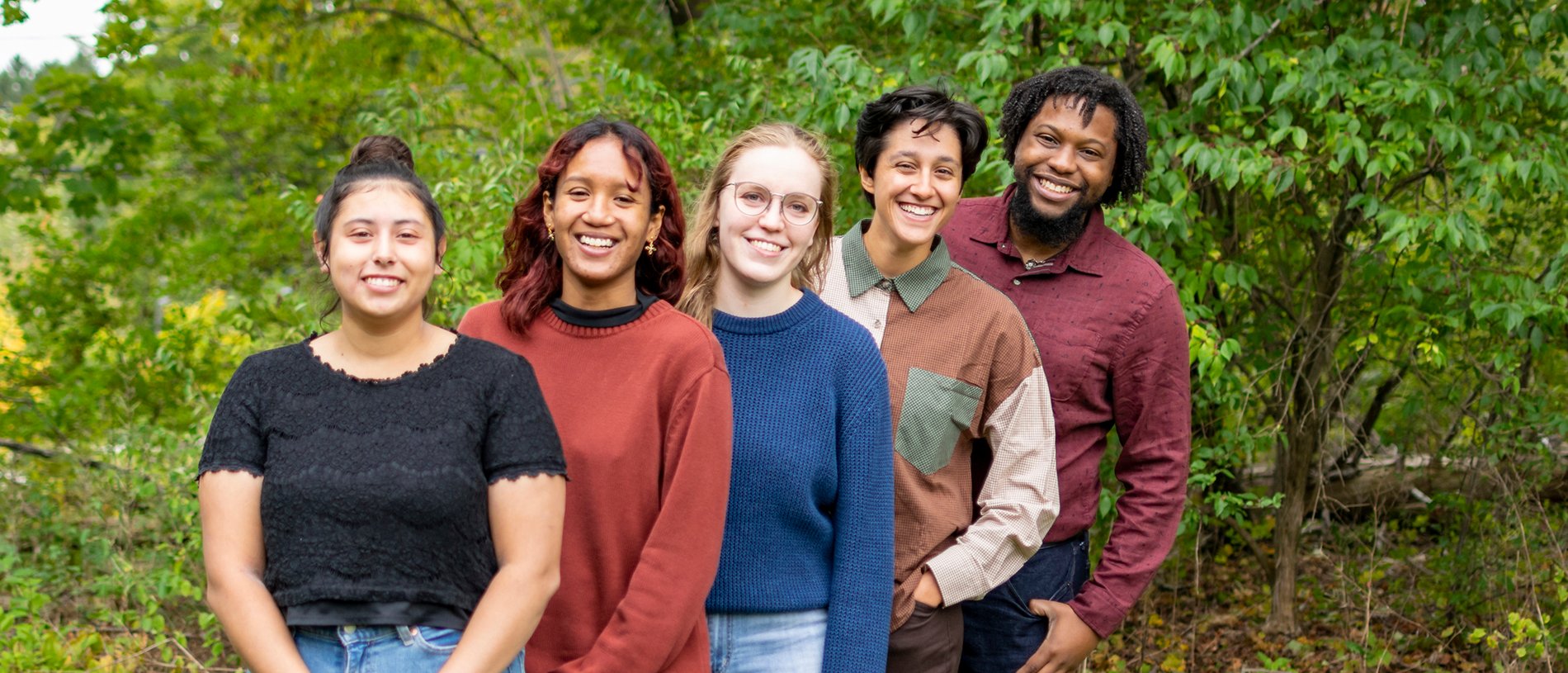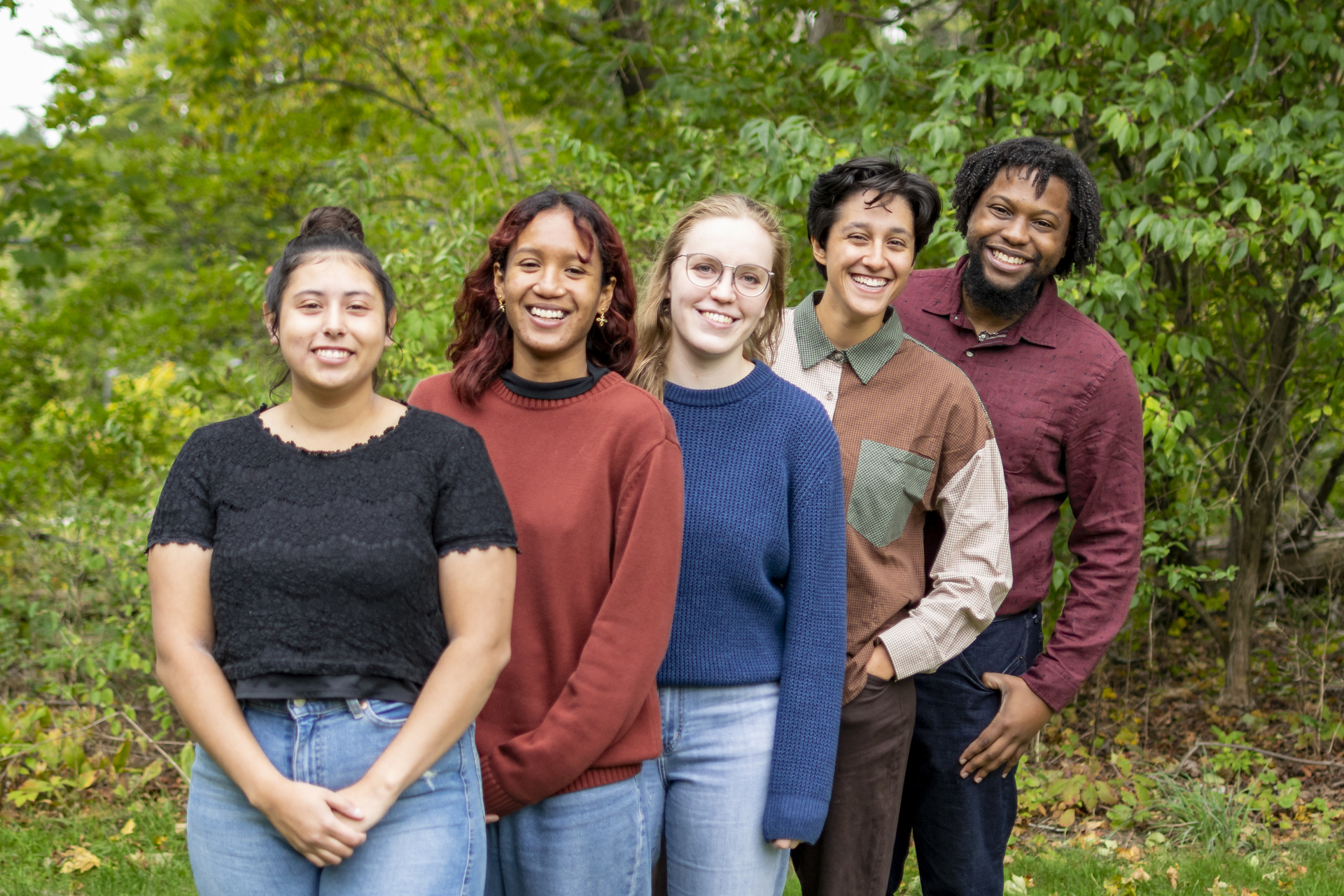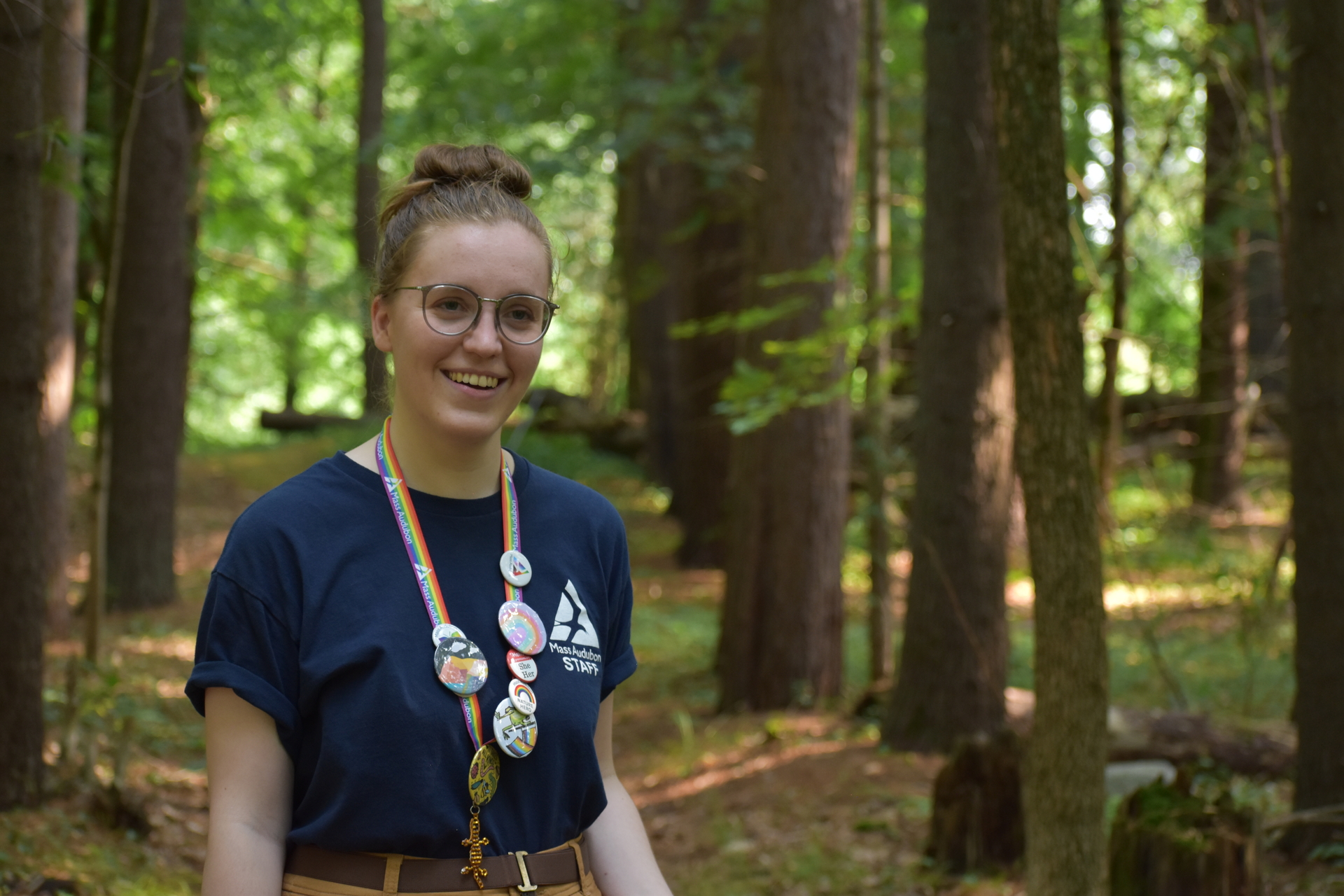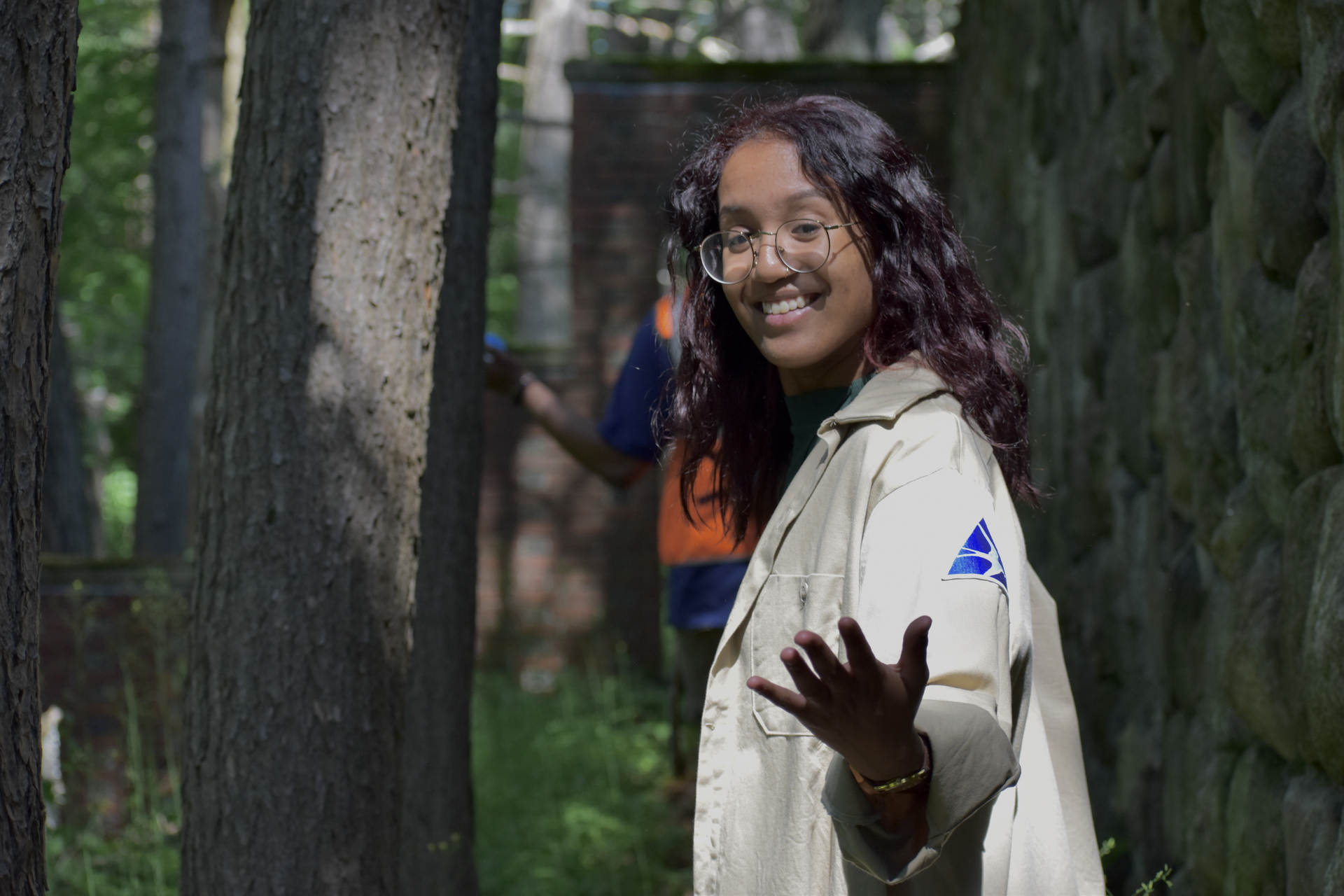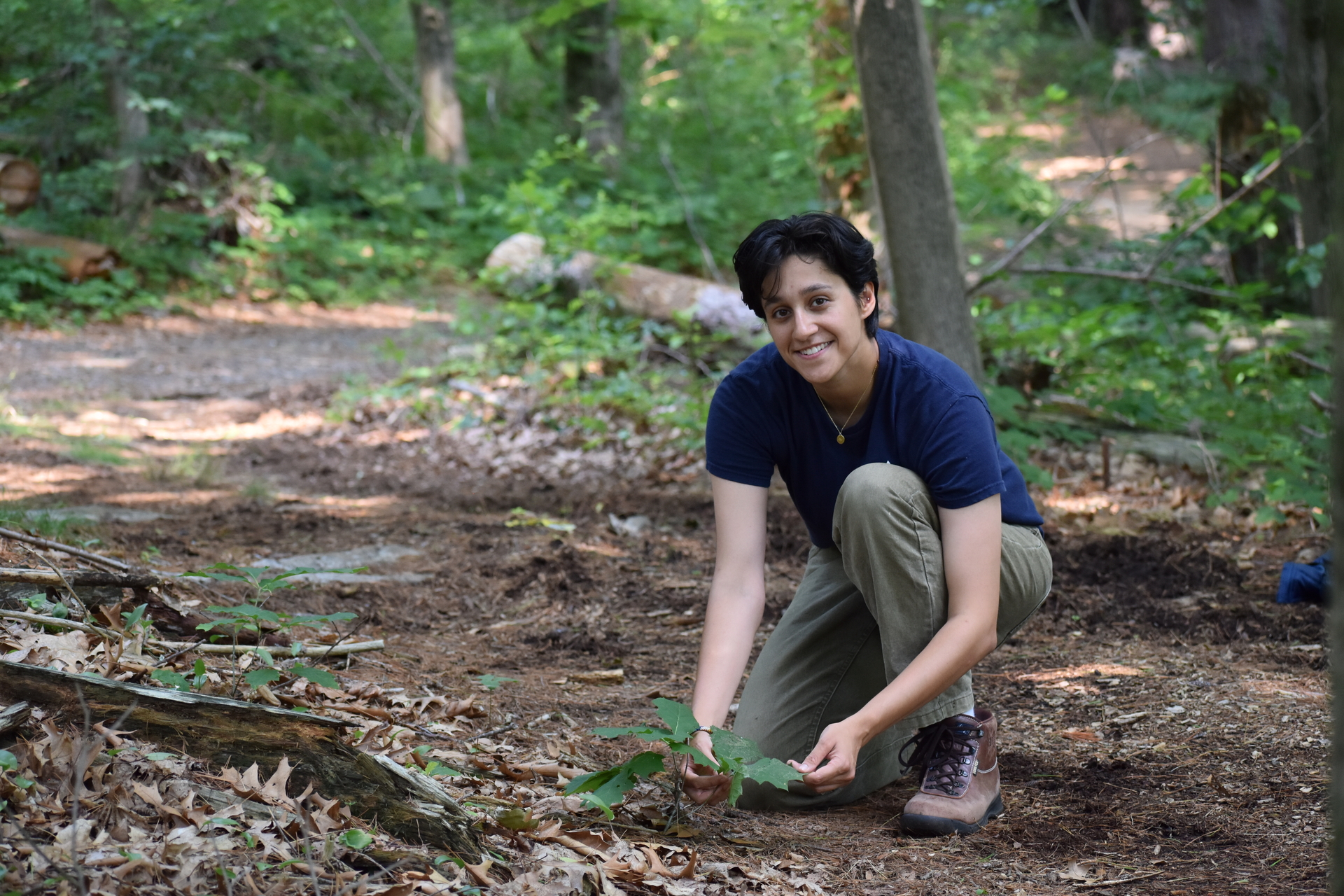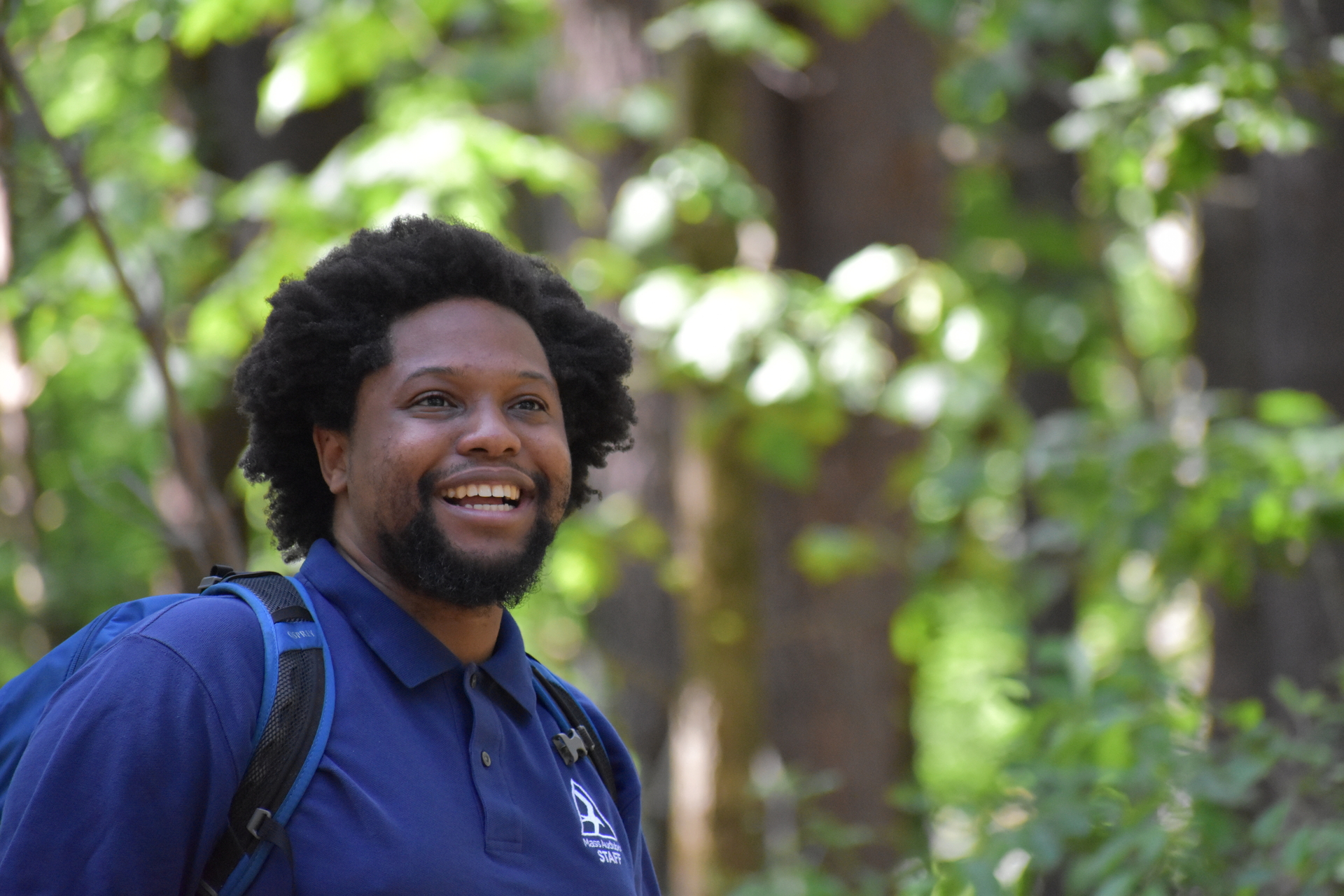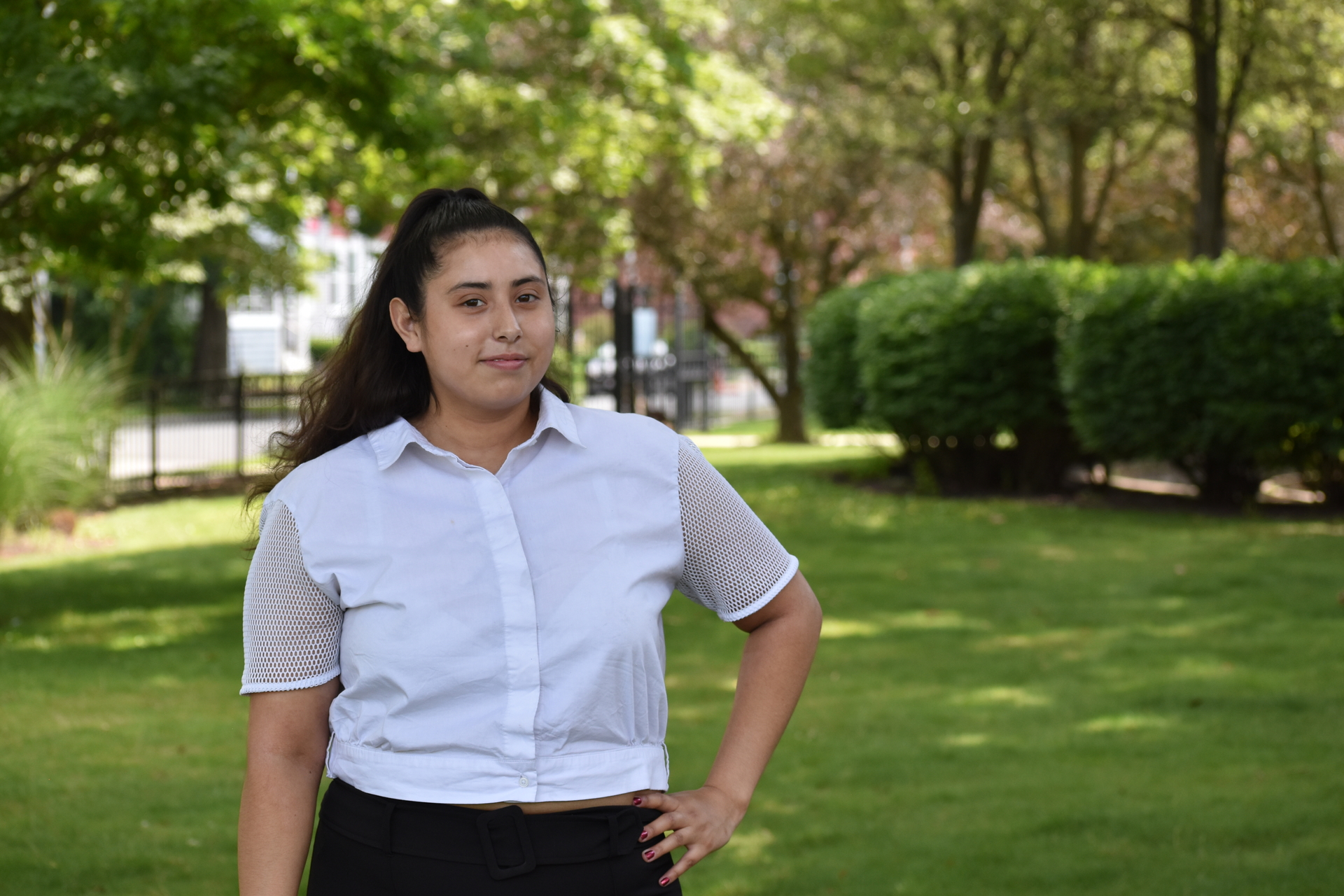In Your Words: Our Environmental Fellows
September 29, 2023
In 2022, Mass Audubon launched the Environmental Fellowship Program so that young professionals with underrepresented identities could gain experience in nature-based careers. Our first cohort was made up of five ambitious fellows that each worked across five different departments. As they close out their 14-month fellowships, each shares a bit about their work and why it is important to them.
Anna Cass, Marketing & Communications
When I was younger, I didn’t know that I could harness my creative talents into a career where I communicate ideas I deeply care about. As part of my professional project, I’ve taught more than 100 young people to tap into the long and storied history of art-based social activism and to create materials that communicate their message effectively. Youth voices are essential in the movement for equitable solutions to the climate crisis, and I built a curriculum that can empower young climate activists.
Through the mediums of button making, patch making, poster design, and photography, young people practiced sharing their vision for the future with the public. Their posters depicted hope for investment in sustainable and climate-resilient infrastructure before natural disasters harm our communities. They made patches expressing the need for planted areas to prioritize the health of nature and humans. Their buttons honored water as a precious resource and espoused the importance of keeping our waterways clean. Through photography, they expressed hope that one day littering would be a universally unthinkable act.
The process of art-making facilitated conversations and the generation of ideas we wouldn’t have otherwise had. While the final product is important, I’m just as passionate about the process of creating.
Anna is now the Communications Coordinator at the Knights Science Journalism Program at MIT.
Isabella Guerero, Environmental Education
As a Mass Audubon fellow, I learned what it really means to say, “Nature is for everyone.” For my professional project, I developed a nature education program titled Storytelling in Nature, which was inspired by my own love of hearing and creating nature stories.
This 4-day program encourages participants to use nature as an outdoor classroom, craft their own nature experiences, and imagine and share their stories through various art media. My goal was to create a place where everyone could hear and share outdoor memories. Meeting so many other nature educators and interacting with all types of students and participants has broadened my scope of what it means to be a nature lover, no matter who you are.
This fellowship program has allowed me the freedom to discover what type of educator I want to be. Meeting so many other nature educators and interacting with all types of students and participants has broadened my scope of what it means to be a nature lover, no matter who you are. I'm glad I was able to contribute to Mass Audubon’s journey to ensure equitable and equal access to nature and education for everyone.
Isabella is now a Teacher Naturalist at Boston Nature Center.
Amara Chittenden, Conservation Science
Science is for everyone, and we must ensure that no voice is marginalized or left out. Community science is a way for everyone, not just scientists, to study and enjoy nature. In my time, I developed a set of guidelines for community science at Mass Audubon wildlife sanctuaries that emphasizes connecting with nature through observations. Whether you’re 9, 19, or 99 years old, your observations can help protect the nature around you.
This summer, I also assisted in the program development of the Massachusetts Climate Corps to include monitoring of the Boston Nature Center using community science tools. At Magazine Beach, I helped a newly organized group of eco-volunteers create projects that are hosted in iNaturalist to tell us about native and invasive species. While the actions taken through community science are simple, the impact on individuals is big. Staff and volunteers shared feelings of being stewards of nature, the peace that comes with making time in nature, and building community with others by learning together.
I am excited to see the increase of inclusivity in conservation science, as we create more pathways to science through early careers like the Environmental Fellowship Program, but also in expanding our community science programs that provide opportunities to connect with nature in new ways.
Amara is now the Community Engagement Coordinator at Boston Nature Center.
Jovan Bryan, Land Conservation
To me, conservation has always been about protecting places, but my time at Mass Audubon has shifted that perspective. Over the past year, I’ve visited many different lands and people across the state.
Each parcel of land and each person who stewarded it had a new story to share. Not only physically of the land itself but of the history the parcel held. Every acre had a tale to tell. And every person from landowners to birders, hikers, officials, campers, volunteers, and more had a connection to this history. While monitoring, I listened and learned about their relationship with the land, and why they wanted to see it thrive.
Through my work, I realized how important and impactful each area is and what we are truly protecting—our stories. Not just the history of the previous human and wildlife communities, but also those yet untold. Conservation is a promise to keep these legacies safe forever, and I’m honored to have been a part of that work.
For my professional project I had the chance to speak with other organizations about how to close those barriers while pushing the needle of protection. It is a complex challenge to face, but one that I am proud to help try and find the answers to. I developed a toolkit to help Mass Audubon think critically about how to expand not only the legacy of land protection but of the people we wish to see benefit from it. This fellowship has helped me distill my passion for protecting the legacy of stories that connect people and nature, for which I am forever grateful.
Jovan is now the Community Conservation Coordinator at Connecticut Land Conservation Council.
Isabela Chachapoyas Ortiz, Policy and Advocacy
At the beginning of my fellowship, I was curious to know what environmental justice-related work was being done at Mass Audubon. I conducted interviews with staff across the organization, and I realized that there was a need to have a space where staff come together, share their work, and learn about environmental justice. I decided to organize a monthly Environmental Justice Professional Learning Group, where we share information about important projects and work happening across the state.
Throughout this experience, there were so many events and activities such as kayaking, hiking, and horseback riding. Although these were fun, there was emphasis on the connection of what we were doing to environmental subjects such as land conservation and sustainability. We also had so many opportunities to go to conferences and expand our knowledge and networks.
Aside from the cohort activities, I had a lot of experience in helping develop a newer grassroots advocacy initiative called Climate Champions. This experience was interesting because I had come from a background with an already established program, so it was beneficial to participate in a brand-new movement. Additionally, I developed a legislator database, worked with volunteers for the Climate Champions program, and attended hearings on our legislative priorities.
Isabela is now the Nature in the City Program Coordinator at Mass Audubon.
Environmental Fellowship Program
Our Environmental Fellowship Program (EFP) is a 14-month fellowship that expands early career opportunities for young professionals with identities that have been historically underrepresented in the environmental and conservation fields.



